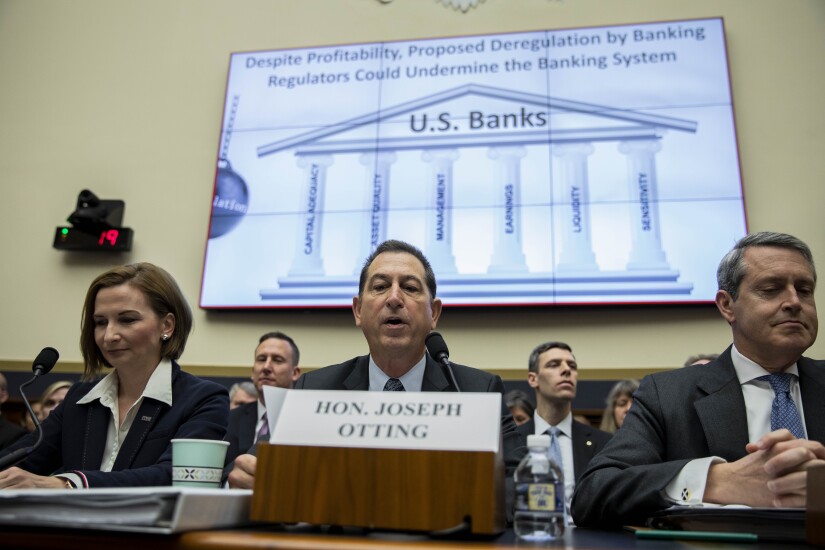The three federal bank regulators usually try to issue rules jointly, but Comptroller of the Currency Joseph Otting on Tuesday pointed to two areas where the agencies may move on separate paths.
Speaking at a regtech conference in New York co-hosted by American Banker, Otting once again suggested the Office of the Comptroller of the Currency could move on a proposal to reform the Community Reinvestment Act before the Federal Reserve Board and Federal Deposit Insurance Corp. were ready to sign on to the plan.
Otting also indicated disagreement between the regulators on whether they need to reform the Camels ratings system. The FDIC and Fed recently sought public comment on how to apply ratings more consistently, but the OCC did not participate.
"I'm not sure that banks want the Camel ratings to change," Otting said during the discussion with Rob Blackwell, American Banker's editor-in-chief.
Among the agency heads, Otting has often sounded the most bullish on the need to revamp outdated policies, even if he acknowledges that the process can be slow.
Rulemaking, particularly when other agencies are involved, is “very complex, very difficult and very elongated, especially for a city that's highly motivated to do nothing,” Otting said.
Here are some key takeaways from his remarks.







